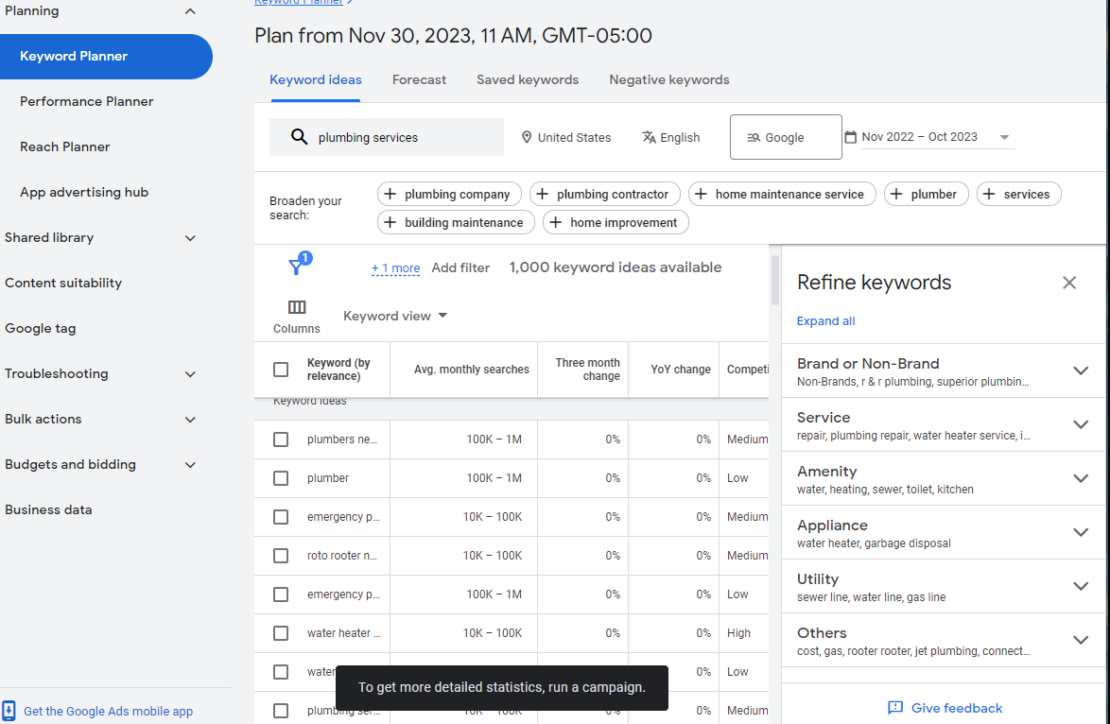How Much Should You Spend Per Month on Google Ads?

Navigating Google Ads is a bit like trying to order a coffee at that super fancy café where the menu is entirely in Italian—it’s a bit overwhelming at first, but with a little guidance, you’ll be ordering like a pro.
Although Google Ads is a great option for businesses looking to improve brand visibility and lead generation, setting a monthly budget can be tricky. When you’re new to the search engine marketing game, predicting your return on investment is as challenging as predicting tomorrow’s weather.
So, let’s start uncovering some of the mysteries of Google Ads spend.
1. Know Your Objectives
Your budget largely depends on what you want to achieve with your campaign.
- Brand Awareness: If you’re introducing a new brand or product, you might spend more initially to create visibility. This might mean a higher budget at the start, which can taper off once you’ve established a presence.
- Lead Generation: For businesses looking to get potential customer inquiries or grow their email list, cost-per-lead (CPL) becomes a significant metric. Estimate how much you’re willing to pay for a lead and multiply this by the number of leads you want.
- Sales: If your primary goal is sales, then you’ll be keen on the cost-per-acquisition (CPA). Knowing how much profit you make per sale helps determine a reasonable CPA.

2. Research Your Industry
Different industries have different average CPCs (cost-per-click). For instance, the legal industry might have a much higher CPC compared to a clothing retailer. Use tools like Google’s Keyword Planner to gauge the estimated CPC for keywords relevant to your business. You can also use third-party tools like Semrush and Ahrefs for competitor research and keyword planning.
3. Start Small & Scale
As the saying goes—it’s better to be safe than sorry. If you’re new to Google Ads, it’s recommended that you start with a smaller budget, monitor the performance, and adjust accordingly. A smaller budget allows you to test different ad copies, target different keywords, and understand which strategies yield the best results. Once you identify a profitable strategy, you can confidently increase your budget.
4. Factor in Seasonal Trends

If you’re in retail or home services, you might experience some surges (or declines) during holidays or specific months. It might make sense to allocate a higher budget during peak periods and reduce it during off-peak times.
Ask your sales team about your company’s seasonal trends, or use tools like Google Trends to research any targeted keyword’s monthly volume by month.
5. Calculate Your Expected Traffic
Using the estimated CPC for your targeted keywords and the monthly budget you’re considering, you can calculate the expected traffic to your website by following this formula:
Expected Traffic = Monthly Budget ÷ Average CPC
So, if you have a budget of $1,000 and an average CPC of $2, you can expect around 500 clicks per month.
6. Consider Other Costs
While your budget primarily covers the cost of the clicks, don’t forget about other related expenses, including:
- Ad Design: If you use display ads or video ads, there might be costs associated with designing these creatives.
- Management Fees: If you hire an agency or a professional to manage your Google Ads, their fees must be factored into the overall monthly spend.
7. Monitor & Adjust Regularly
Last but certainly not least—the effectiveness of your ads can change due to various factors, such as competitors’ strategies, market trends, or changes in user behavior. You can get the most out of your budget by regularly reviewing your Google Ads account to adjust your bids or pause underperforming ads.
Plan Your Campaign Today
The right monthly budget for Google Ads varies for every business. While there’s no one-size-fits-all answer, by understanding your goals, researching your market, and regularly optimizing your campaigns, you can arrive at a budget that provides a strong ROI. Always remember that it’s not about how much you spend but how effectively you spend it.
If you need help researching keywords, buyer behaviors, or your competitors, get help from Momentum. We’ve built, maintained, and monitored Google Ads campaigns for over 10 years. Visit our website today to schedule a consultation.
